Walhalla isn’t merely a Norse myth. It stands commandingly on the edge of a hill overlooking the Danube River Valley at Donaustauf just outside of Regensburg, Germany. But for those approaching from the street, a small forest of trees hides this spectacular neo-classical building. As you approach, and the trees thin to show off the secret it’s keeping. It’s more than a little striking — and that’s before you even venture inside to see the Hall of Fame it contains. Whether you visit the Walhalla Memorial to admire the architecture, the stunning view, or to go inside and see the collection of busts honoring famous Germans, you can’t lose. It’s an impressive outing.

Brief History of Walhalla
In 1830, construction began on Walhalla by order of King Ludwig I of Bavaria. Twelve years later the building, designed by Leo von Klenze, was completed. As is clear by looking at it, Klenze drew inspiration from the ancient world, specifically the Parthenon. Ludwig I commissioned the building in honor of the 1807 defeat of Napoleon’s armies. At the time of the defeat, Ludwig was the crown prince and envisioned the project as a way to bring together the German states which had yet to be unified into a single nation state. Ludwig wouldn’t take the throne until 1825.
The concept of the memorial is a Hall of Fame honoring Germanic history. Inside the massive building, marble busts line the walls and memorial plaques hang to honor leaders, scientists, and artists.
Klenze was one of Ludwig I’s favorite architects. His work can be seen around the world, but most notably in Munich. Among his many credits, he had a hand in museums like the Alte Pinakothek and the Glyptothek, the downtown palace the Residenz, the Monopteros temples in both Englischer Garten and the park at Nymphenburg Palace, and the Rumeshalle (another Hall of Fame) that stands behind Lady Bavaria on the Theresienwiese.
Visiting Walhalla
Even when you know what to expect from Walhalla, it’s still remarkably impressive. As you approach the building from the parking lot and move around towards the Danube-facing side, it becomes larger and more striking. The dropoff of the hill makes it feel as though it is truly dominating not just the area but the entire valley over which it looks. The river-facing side of Walhalla offers an uninterrupted 180-degree view over the countryside. The location is just east of Regensburg, in Donaustauf.
Stairs with numerous landings lead down the hill towards the banks of the River Danube. From each landing, you get a different perspective of Walhalla.
From the pediments over the front and back sides to the countless columns, there are plenty of architectural details to enjoy outside of Walhalla. But inside there are yet more architectural details to enjoy as well as the busts and plaques for which the building was designed.
There are currently about 130 busts and 65 plaques inside of Walhalla. King Ludwig I and his advisors decided which individuals would be honored with busts inside of the Walhalla Memorial. Originally there were 96 busts in the memorial. Since 1962, a panel from the Bavarian Council of Ministers and Bavarian Academy of Sciences adds new busts every five to seven years.
Not only is it interesting to walk the walls and see which individuals are among those places of honor, but also the style of the busts. The older busts, such as that of Albrecht Dürer and Johann von Guttenberg, have a very classic feel. More recent additions, such as one of Albert Einstein, is a bit more whimsical.
Tips for Visiting
Exploring Walhalla from the outside is free. To venture inside, there is a fee. The Bavarian Department of Castles, Gardens, and Lakes oversees the care of Walhalla.
If you’re planning to visit several of the palaces and castles under their care, I always recommend getting one of their special tickets. They offer an annual ticket and a special 14-day ticket. If you’re only exploring the region for the day, they also offer a combination ticket for Walhalla, the Hall of Liberation (Befreiungshalle), and Prunn Castle.
Stay alert when walking around the exterior of the memorial! Walhalla does sit on the edge of the hill and it’s a rather steep and long way down. The sidewalks and steps around the building have a white line painted. Visitors should stay behind the white line for their safety.
Getting to Walhalla
Driving is probably the best and easiest way to reach Walhalla. There is a parking lot just out in front of the monument where you can park for a fee.
Alternatively, if you’re without a car, there are a couple of options. There are ferries that operate cruises from nearby Regensburg to Walhalla. With this option, you can sail up the River Danube. Then, you simply disembark right at the foot of the hill with steps leading up to Walhalla.
With public transit, there is a bus from Regensburg that you can take to Walhallastr. From the bus stop, it’s approximately a 20-minute walk to reach the monument.
After you visit the memorial monument, consider a visit to nearby Kloster Weltenburg. The monastic brewery sits right on the Danube, only a half hour’s drive west of Walhalla.
Save this post for later on Pinterest!
All opinions, as well as all photos, are my own.
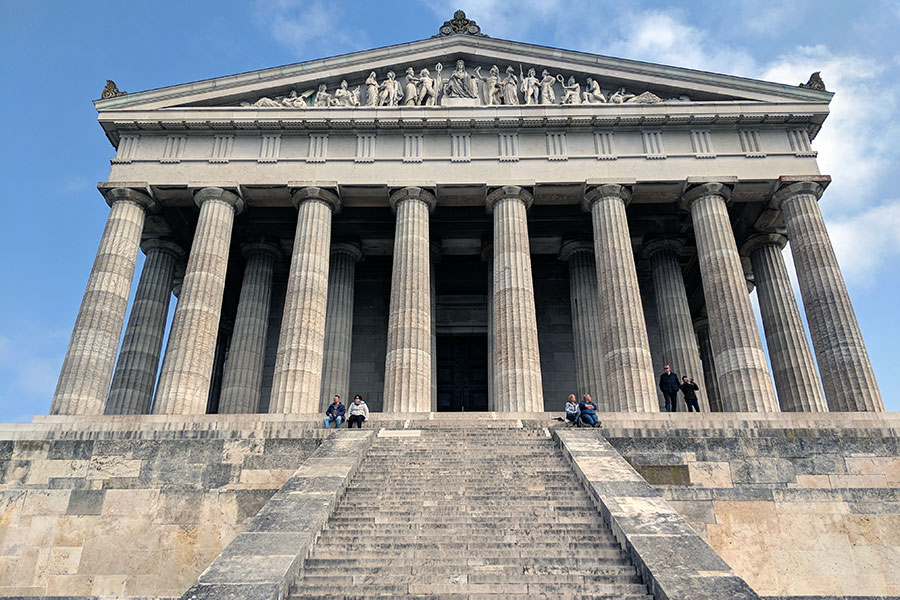
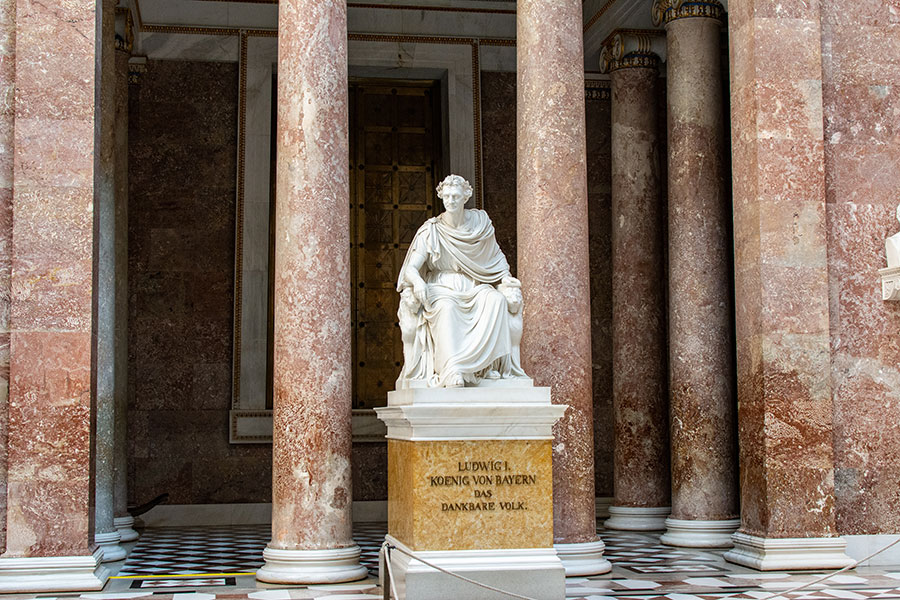
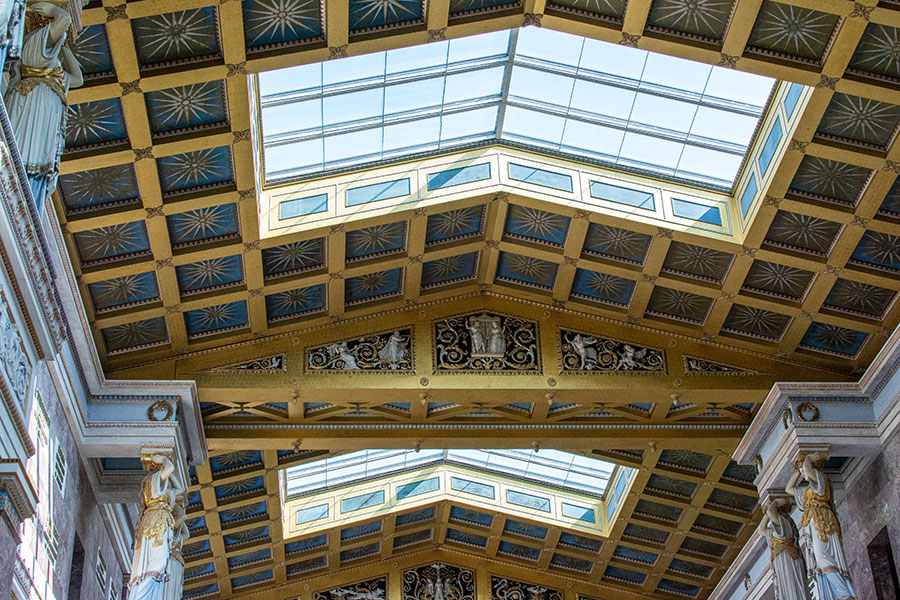
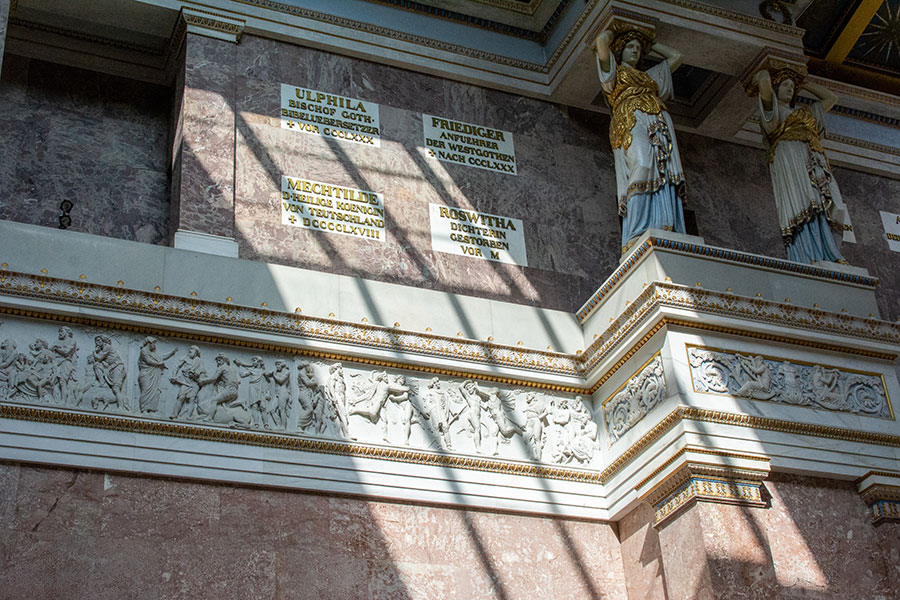
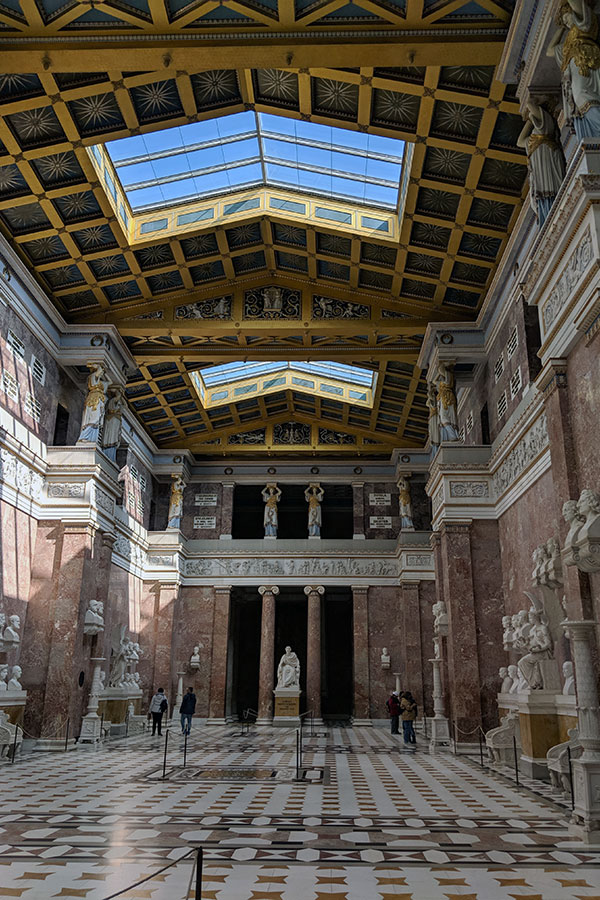
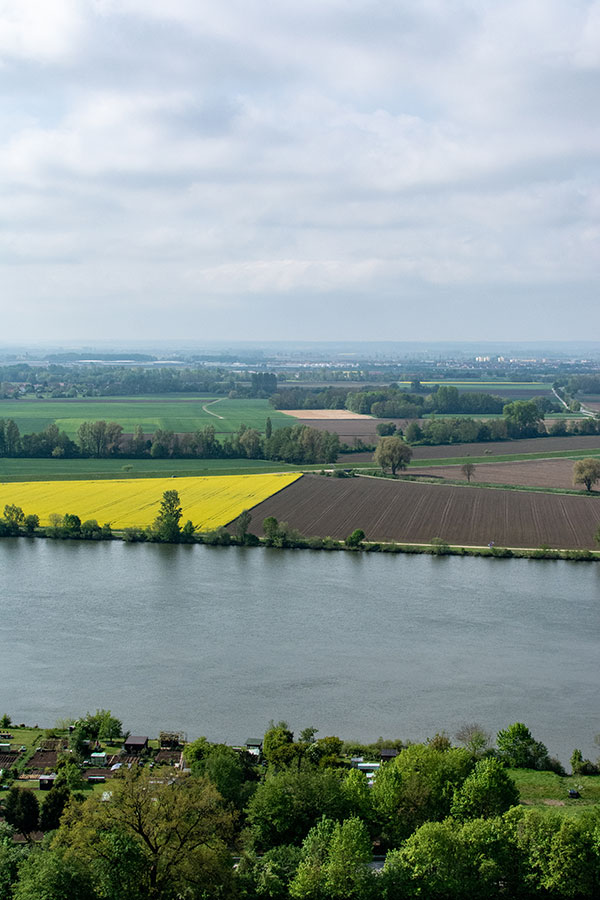
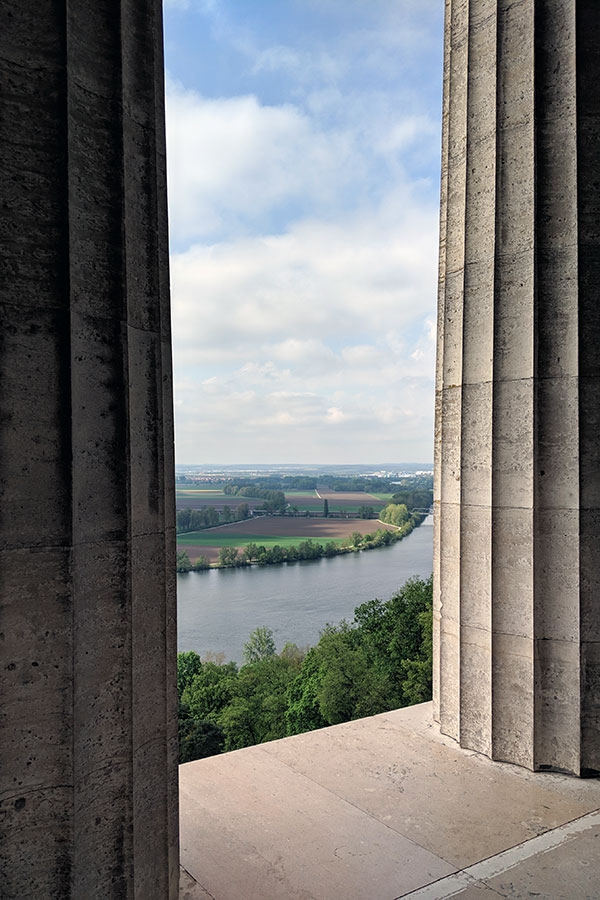
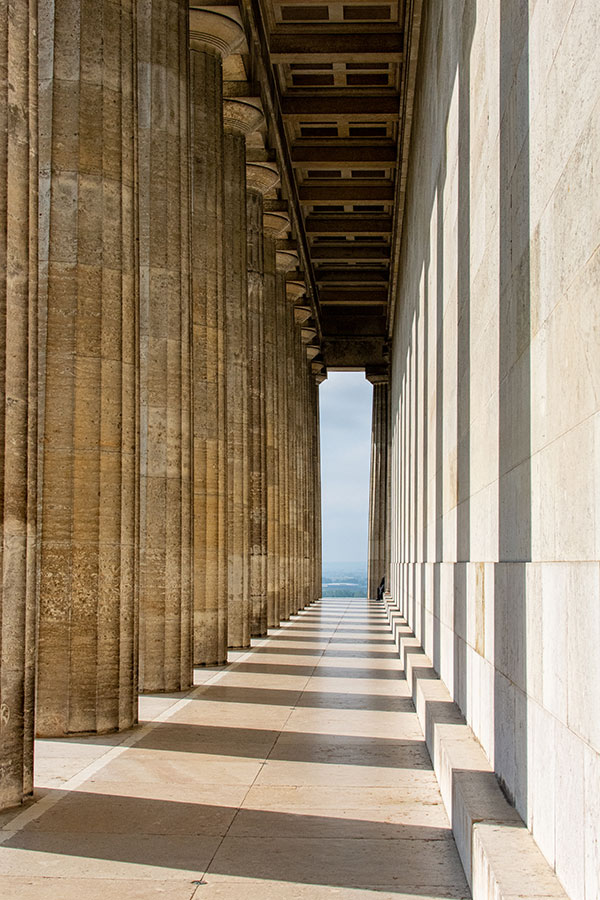

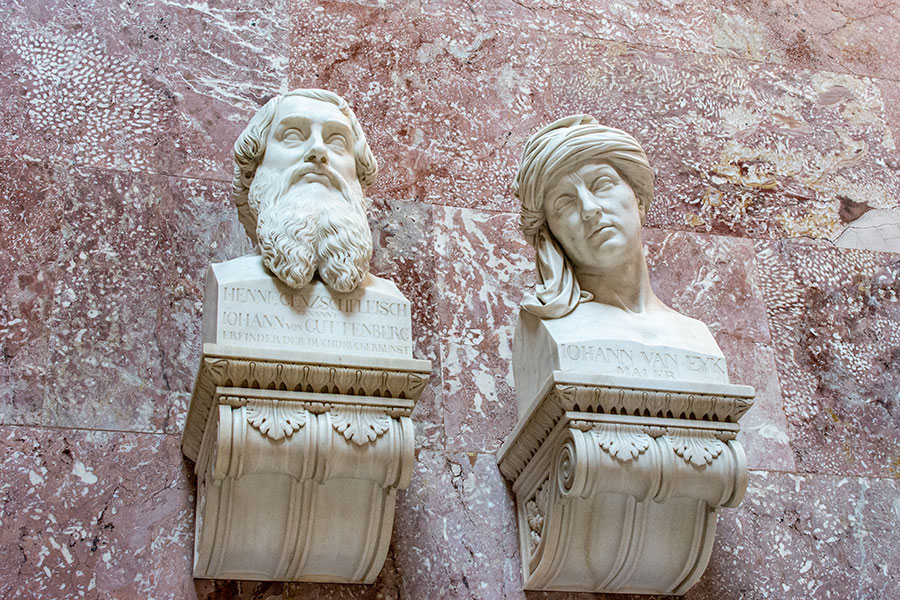
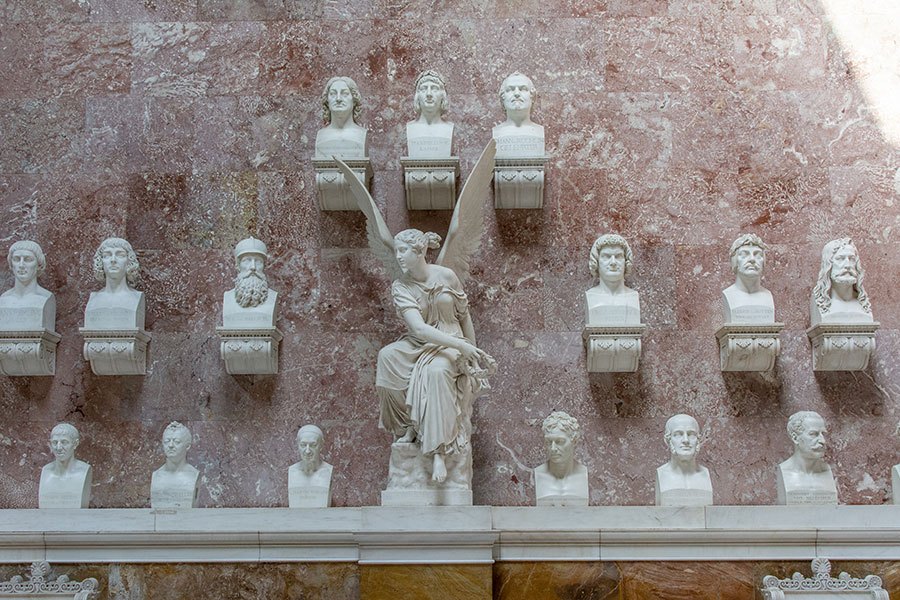
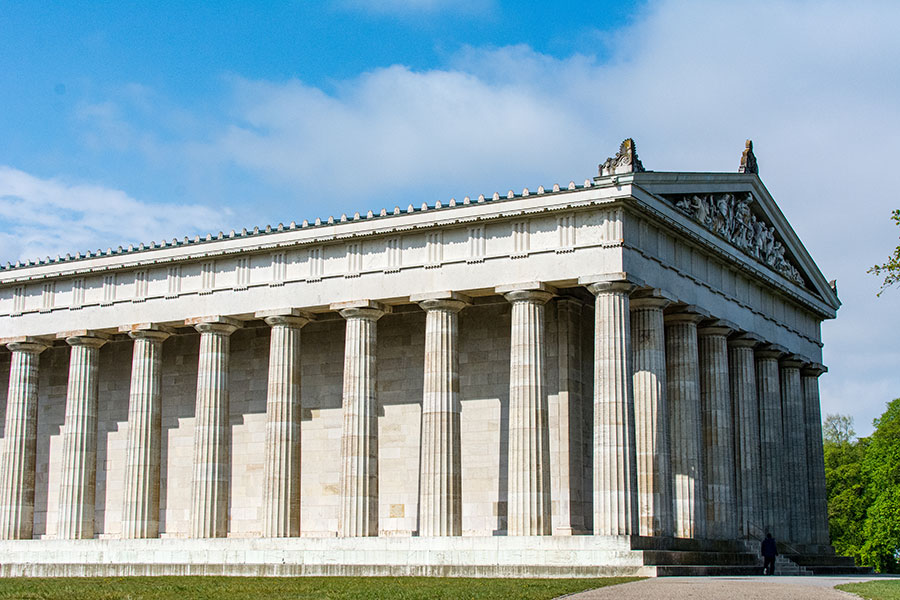



Oh wow. This is stunning architecture. The sculptures and ceilings are beautiful.
This looks like a magnificent place!!!! So beautiful on the inside too